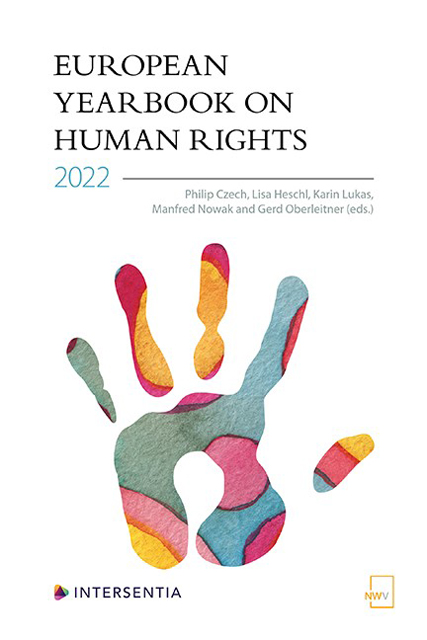The Execution of ECtHR Judgments Related to Inter-State Disputes
Published online by Cambridge University Press: 20 April 2023
Summary
ABSTRACT
While the European Convention on Human Rights (ECHR) provides to its States Parties the possibility to lodge applications against other States Parties, so far the European Court of Human Rights (ECtHR) has delivered only a few judgments in such cases. Their execution has proven to be lengthy and incomplete, despite several efforts undertaken by the Committee of Ministers (CoM), supervising this process under Article 46(2) ECHR. The same concerns the few individual cases related to inter-state disputes, such as the group of cases Catan and others v Russia; and cases concerning the military conflict between Armenia and Azerbaijan in the Nagorno-Karabakh region between 1988 and 1994 – Chiragov and others v Armenia and Sargsyan v Azerbaijan.
Therefore, it would be useful to have a closer look at this problem, and to reflect on the adequacy of the reactions of the respondent states and the CoM. Are these judgments ‘executable’? Some of them are relatively recent (Georgia v Russia (I) and Georgia v Russia (II)), but the judgment Cyprus v Turkey has been pending before the CoM since 2001, although some of the aspects of this case have already been closed. This contribution will refer to all the abovementioned judgments, which are under ‘enhanced supervision’ of the CoM, and to the measures taken by the respondent states to execute them, in the context of the proceedings before the CoM on the basis of Article 46(2) ECHR. It will not focus on proceedings before the ECtHR in inter-state cases or individual cases related to inter-state disputes.
INTRODUCTION
Since the entry into force of the European Convention on Human Rights (ECHR) in 1953, the European Commission of Human Rights and the European Court of Human Rights (ECtHR) have dealt with 31 inter-state cases, lodged on the basis of Article 33 ECHR.
- Type
- Chapter
- Information
- European Yearbook on Human Rights 2022 , pp. 379 - 408Publisher: IntersentiaPrint publication year: 2022



